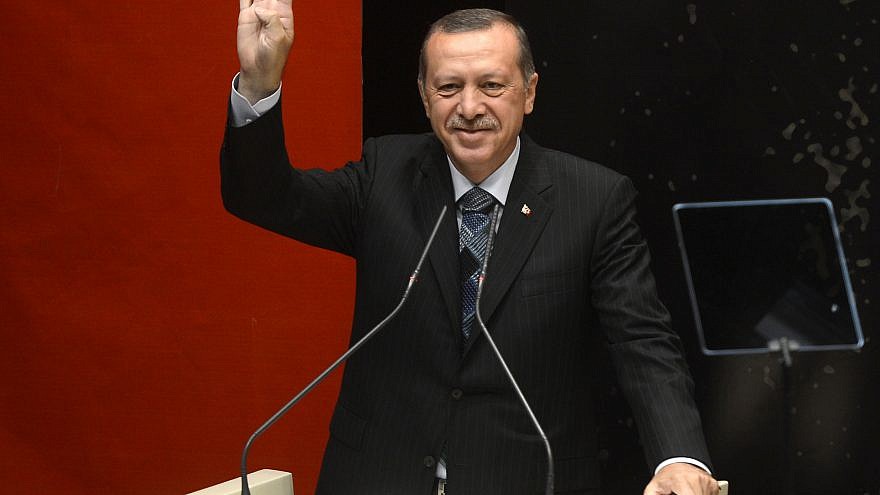Turkey’s fight against the coronavirus pandemic is generally accepted to be rational, well-timed, not too badly planned, and fairly effective. At the time when the German case figure was 7,000 (and the Dutch and U.K. figures were at around 2,000 each), Turkey’s was just 98. And when, on March 19, the Italian death toll surpassed China’s at 4,400, the Turkish mortality figure was just three.
The government sealed borders—most significantly with Iran—just in time; cancelled all public gatherings and events, including football games; ordered most businesses to be shuttered; and launched an effective awareness campaign to keep Turks at home. About 3,000 Turkish pilgrims on their way home from Mecca were quarantined. The Turkish awareness rate regarding coronavirus was 100 percent by mid-March, according to one poll.
But several questions remain unanswered. Why did the Turkish religious authorities allow 21,500 people to travel to Mecca in the first place? Would it not have been safer for them to wait to fulfill their pilgrimage until after the world goes back to normal? And why were only 3,000 pilgrims quarantined? The other 18,500 returnees from Mecca are walking free in Turkey.
Coronavirus in Turkey, like most things in that country, involves much black humor. As ever, Turkey is funny unless you have to live there.
Professor Ali Erbaş, president of Diyanet, Turkey’s highest religious authority, gave a Friday sermon in which he warned Muslims not to attend crowded events. He delivered this sermon in a mosque containing 5,000 people. A few days later, Diyanet issued a fatwa indefinitely suspending Friday prayers.
Turks are a brave people, and pious Turks are apparently the bravest of all. Large groups of Muslims protested the suspension of Friday prayers, on the logic that prayers would surely protect the pious from any evil, up to and including a silly little virus. Reading the news of the protests, a friend of the author said, “It’s a view we should respect. It’s also a theory worth testing. How about injecting the coronavirus into all these pious folks?”
But the way “better-educated” Turks, including journalists and columnists, interpret the coronavirus crisis is even more entertaining.
One Islamist writer suggested that “now that all bars and alcohol-licensed enterprises are (temporarily) shut maybe we should consider keeping them shut forever due to the risk of coronavirus.”
Another suggested that the “CHP virus”—CHP is the acronym for Turkey’s secular main opposition party—is far more dangerous than coronavirus.
Pro-government media claimed they had found the real conspiracy: The virus was first detected in Turkey on the day a new opposition party, DEVA, was officially inaugurated, which cannot be a coincidence. Any opposition party challenging President Recep Tayyip Erdoğan is tantamount to a deadly virus threatening Turkey.
Other Islamists had a more intellectual, global response to the virus: they threw down a gauntlet to science. Tell us, positivists, secularists: where is your cure? Where is the “science” you always put before religion?
Turkish social media is of course a rich source of “scientific” interpretations of the coronavirus crisis, many of them larded with predictable self-aggrandizement, paranoia and anti-Semitism.
Viruses change, but Islamist rhetoric does not. Yeniden Refah, a small Islamist party, said: “Though we do not have certain evidence, this virus serves Zionism’s goals of decreasing the number of people and preventing it from increasing, and important research expresses this. Zionism is a five-thousand-year-old bacteria that has caused the suffering of people.”
One collective response that neatly illustrates the Turkish approach to a crisis was a television interview with ordinary citizens in the marketplace in Elaziğ, a province in eastern Turkey. A local broadcaster sent a team to interview the locals after reporters noticed with shock that the streets and main marketplace of Elaziğ were full of people, so much so that the province was even more crowded than it had been before the coronavirus outbreak. The crew asked passersby, “What about coronavirus? Aren’t you afraid to be in crowded public places?”
Three interviewees expressed confidence that the power of prayer will defeat all viruses. A few claimed that coronavirus does not exist—it is a lie swallowed by a credulous world. Another said, “Allah always protects the believer.” Another contributed this theory: “The entire world is at war with Turkey. This virus is Allah’s curse on them.”
Burak Bekdil is an Ankara-based columnist. He regularly writes for the Gatestone Institute and Defense News, and is a fellow at the Middle East Forum. He is also a founder of, and associate editor at, the Ankara-based think tank Sigma.
This article was first published by the Begin-Sadat Center for Strategic Studies.


























